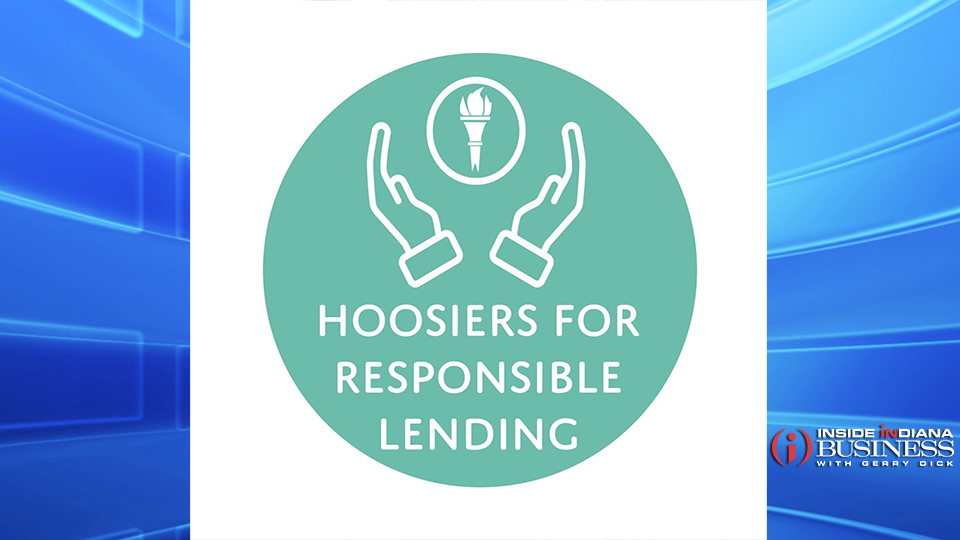Setting the record straight: Payday loans are debt traps
Subscriber Benefit
As a subscriber you can listen to articles at work, in the car, or while you work out. Subscribe Now
In a recent Perspectives article, the president of A-1 Cash Advance – a payday lender with several storefronts in Indiana – questioned both the intent of advocacy by Hoosiers for Responsible Lending and our assertions about the impact that high-cost payday loans have on Hoosiers. We are writing to set the record straight on several key points, all with one underlying message: payday loans are debt traps, and Hoosiers deserve responsible lending alternatives.
First, the payday CEO claims that those of us advancing consumer-friendly policies have “never needed or used a small-dollar loan or put themselves in the shoes of Hoosiers who do.” This couldn’t be further from the truth. Our coalition consists of local non-profits, faith-based organizations, military and veteran-serving organizations, and community-based groups that are focused on providing opportunity and financial security for all Hoosiers. The Indiana Community Action Poverty Institute, a target of this industry op-ed, is a program of the Indiana Community Action Association – a network of Community Action Agencies that work every day to serve individuals and families at or below 125% of the Federal Poverty Level.
The coalition also includes Prosperity Indiana, HomesteadCS (a HUD-certified housing counseling agency), Indiana United Ways, the Indianapolis Urban League, the Indiana Catholic Conference, the Military/Veterans Coalition of Indiana, and Habitat for Humanity of Indiana, among others. These coalition members and those they serve have witnessed the financial devastation caused by payday loans, supported borrowers climbing out of this debt, and created responsible alternatives like Community Loan Centers. Our work is always informed and driven by the lived experiences of Hoosiers struggling to make ends meet, whereas loan products from payday lenders only exploit their difficult circumstances.
Second, there is nothing hypothetical about the Institute’s report. We cite reputable sources like the legally required public reporting payday lenders are required to do in Indiana; payday lenders collected $29.2 million in finance charges from Hoosier borrowers at rates as high as 391% Annual Percentage rate (APR) in 2021. At 36% APR, Hoosiers could have saved over $26 million. That’s the math. Meanwhile, the lender claims that payday loans are “cost-competitive, transparent, and reliable.” Cost competitive? The lender’s website reveals that the cost of loans made by his company are the maximum allowable by law– as are other lenders’ rates. Transparent? Lenders consistently fail to disclose that payday debt is far from being a ‘short-term’ fix. It is often long-term. 80% of payday loans are rolled over or renewed within 14 days. Reliable? That’s not the word most Hoosiers would use – 94% say they are expensive, 87% say they are a financial burden, and 84% say they are harmful.
Third, APR (Annual Percentage Rate) is the appropriate measure of a short-term, small-dollar loan. The federal Truth in Lending Act, which requires lenders to disclose the APR of loans, was signed into law in 1968 as a means to protect borrowers from predatory and deceptive practices. An APR provides the best tool available to compare the cost of credit across different loan sizes, lengths, and types.
However, payday lenders often describe the cost of their loans in terms of fees or simple interest rates. Unlike simple interest, APR includes fees. Payday lenders frequently try to hide the true cost of their loans by describing the cost in fees or adding fees outside the interest rate. Without an APR, how can a borrower realistically compare different loan products? To assert that an APR is not appropriate runs counter to any claim of transparency.
Hoosiers deserve transparency in all aspects, particularly in small dollar lending considering that payday lenders are exempt from our state’s criminal loansharking cap of 72% APR and are free to charge 300% APR or more in Indiana.
Finally, our call for a 36% APR cap on small loans at the federal and state levels is informed by the experiences of Hoosiers, of consumers in other states, and a thorough review of available research. It is alarming to see the industry leaning on research with methodological problems from authors who have a consistent record of miscalculations to advance its cause.
The demand for short-term credit is rooted in underinvestment in services that support lower-income working Hoosiers and their families, wage and wealth inequality, and racial inequities. While payday lenders do not create these circumstances, they should not be permitted to exacerbate the financial struggles of these households. Rather, if they truly cared about our communities, they would join with us in advocating for policies that provide high-quality, affordable child care and housing, a living wage with benefits, and stabilization of medical care costs. These are what Hoosiers need to achieve financial security, not traps that compound financial problems and drain communities that are already strapped for resources.
Hoosiers for Responsible Lending (HRL) was created by a network of policy advocates working to empower Hoosiers regarding responsible lending and informed borrowing. It is co-governed by Prosperity Indiana and the Indiana Community Action Poverty Institute and has a Steering Committee of diverse organizations that work to create a fair, transparent credit marketplace that benefits consumers, lenders, and the Hoosier economy.
Steering Committee Member Authors:
- Ambre Marr, State Legislative Director, AARP Indiana
- Andrew Bradley, Policy Director, Prosperity Indiana
- Erin Macey, Director, Indiana Community Action Poverty Institute
- General Jim Bauerle, Legislative Director, Military / Veterans Coalition of Indiana
- Marie Morse, Executive Director, HomesteadCS
- Mark Russell, Director of Advocacy, Indianapolis Urban League
- Steve Hoffman, President/CEO, Brightpoint
